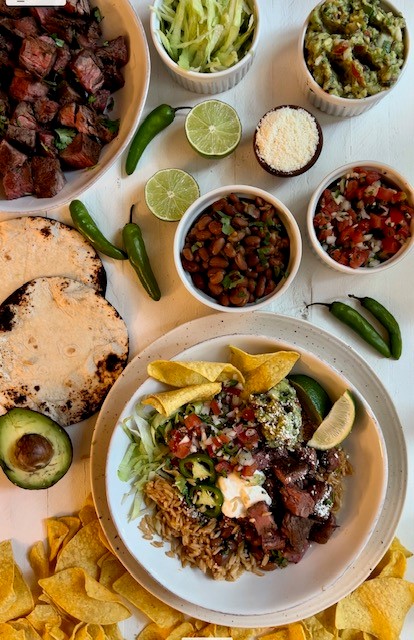
We all know Victoria's secrets, and now you know Chipotle's, too.
Chipotle's Copycat Carne Asada
INGREDIENTS
- 2 pounds flank steak
- 2 tablespoons olive oil
- 2 tablespoons soy sauce
- 2 tablespoons white vinegar
- 1/4 cup orange juice
- 2 tablespoons lime juice
- 8 garlic cloves, minced
- 1 tablespoon cumin and oregano
- 2 teaspoons each salt, chili powder, onion powder, and paprika
- ½ teaspoon each pepper and cayenne pepper
INSTRUCTIONS
- Whisk the orange juice, lime juice, olive oil, garlic, oregano, chili powder, salt, cumin, pepper, and cayenne in a small bowl.
- Place the steak in a 9x13 baking dish or gallon-size ziplock bag and cover it with the marinade until fully coated. Refrigerate for 1 to 4 hours.
- Preheat the grill to medium-high heat (400-450°F).
- Discard the extra marinade and grill the steak for 5-8 minutes per side, depending on the thickness.
- Remove steak and allow to rest for 8 minutes. Slice thinly against the grain and serve.
